Speech Therapy
Speech therapy addresses delays and disorders in articulation (difficulty producing sounds correctly to the point that speech intelligibility is affected), receptive language (difficulty understanding or processing language), expressive language (difficulty putting words together, limited vocabulary, or inability to use language in a socially appropriate way), fluency/stuttering (the flow of speech is interrupted by abnormal stops, repetitions, or prolonging sounds/syllables), voice (problems with the pitch, volume, or quality of the voice), hearing (impairment or loss in hearing), dysphagia (difficulties with eating and swallowing), and oral motor (difficulties with the movement and placement of oral structures such as the lips, tongue, teeth, palate, and jaw). A speech language pathologist can also assist in developing appropriate alternative and augmentative communication (i.e., sign language, assistive communication devices) for your child.
Speech therapists assist children in becoming successful communicators and in developing functional feeding and oral motor skills.
Our speech language pathologists have a Master's Degree, have passed a National Examination, and are licensed in the state of South Carolina. In addition, each speech language pathologist has completed a Certificate of Clinical Competency. We have speech language pathologists trained in Auditory Verbal Therapy, PECS, Oral Placement Therapy, Beckman Oral Motor Protocol, and PROMPT.
If your child is not meeting developmental milestones for speech/language skills, has difficulty correctly producing sounds, and/or shows signs of feeding disorders, he/she may benefit from a Speech Therapy evaluation. To schedule an appointment, please call either our Spartanburg clinic at 864-595-4225 or our Greenville clinic 864-627-0009.
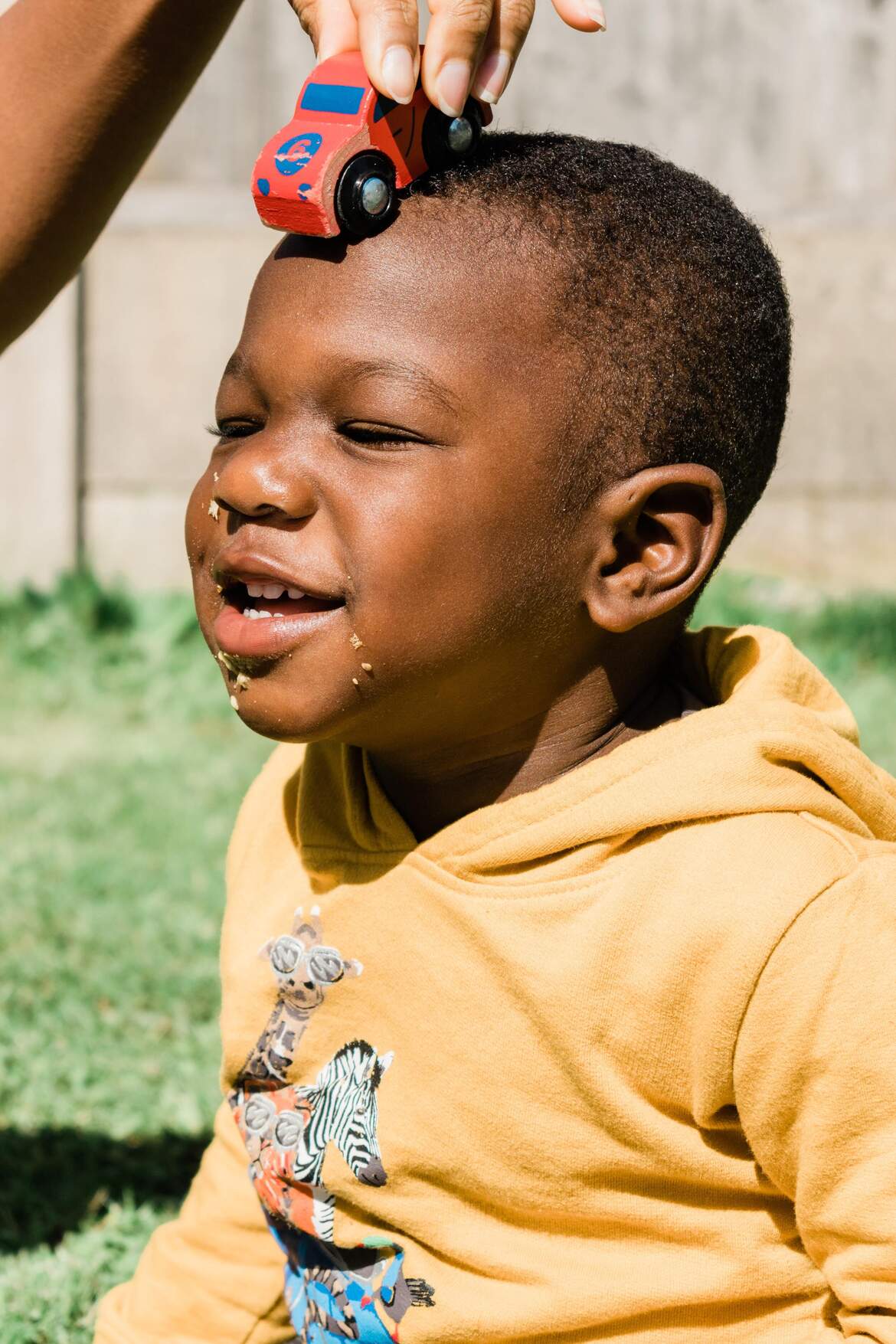
Specialty Programs
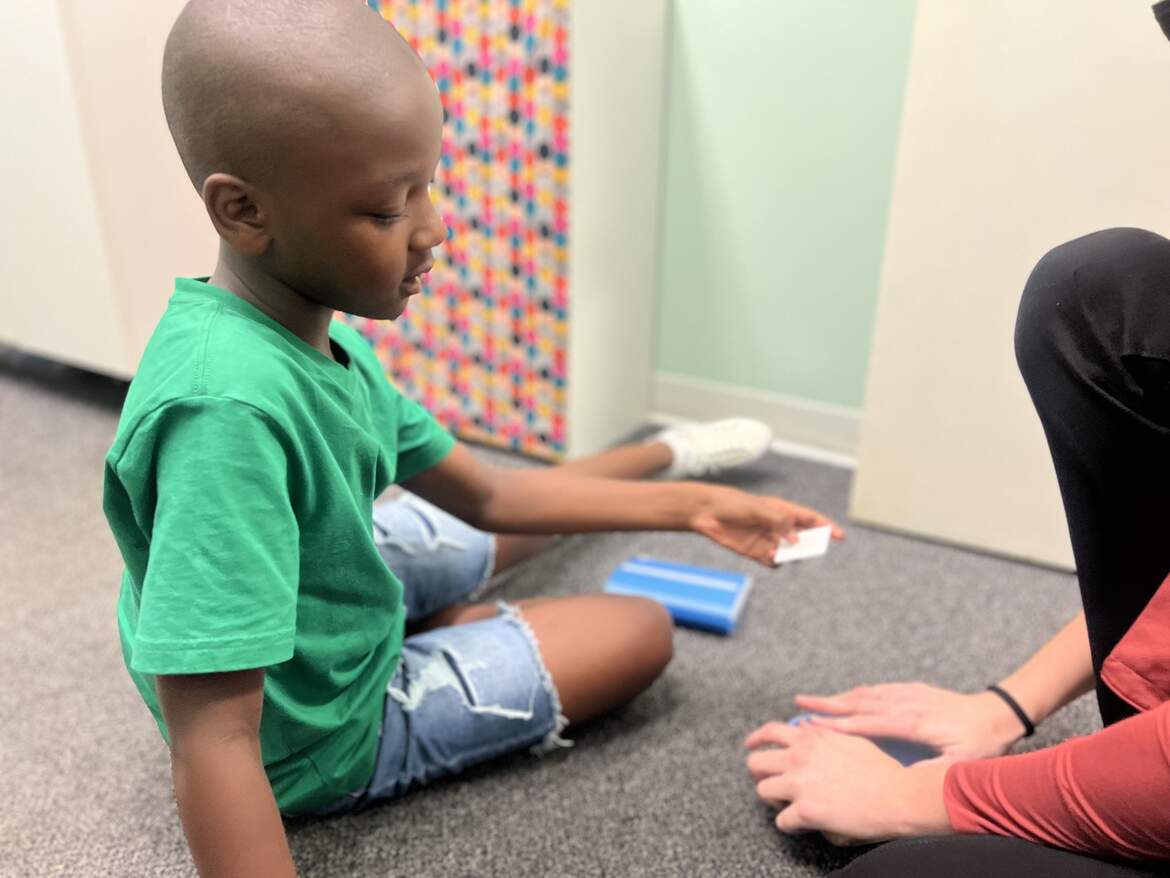
PECS (Picture Exchange Communication System)
A type of augmentative-alternative communication for individuals with autism spectrum disorder and/or related developmental disabilities. This program uses pictures in order to promote communication between a child and his/her communication partners.
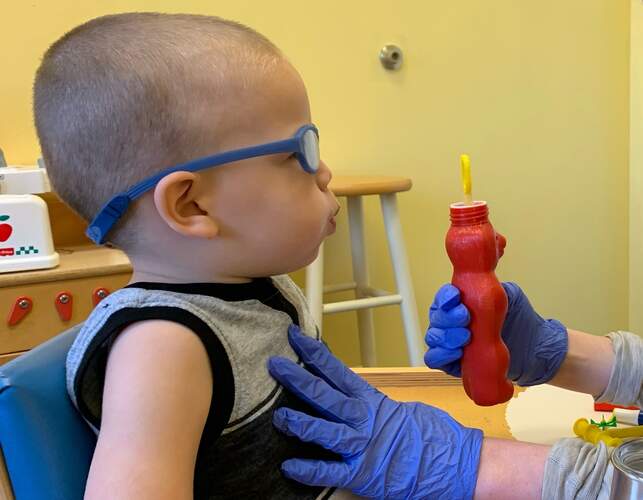
Oral Placement Therapy
A type of oral motor therapy used by speech-language pathologists to target specific movements needed for speech clarity and feeding. The program consists of hierarchies and uses tools such as straws, horns, bubbles, and food.
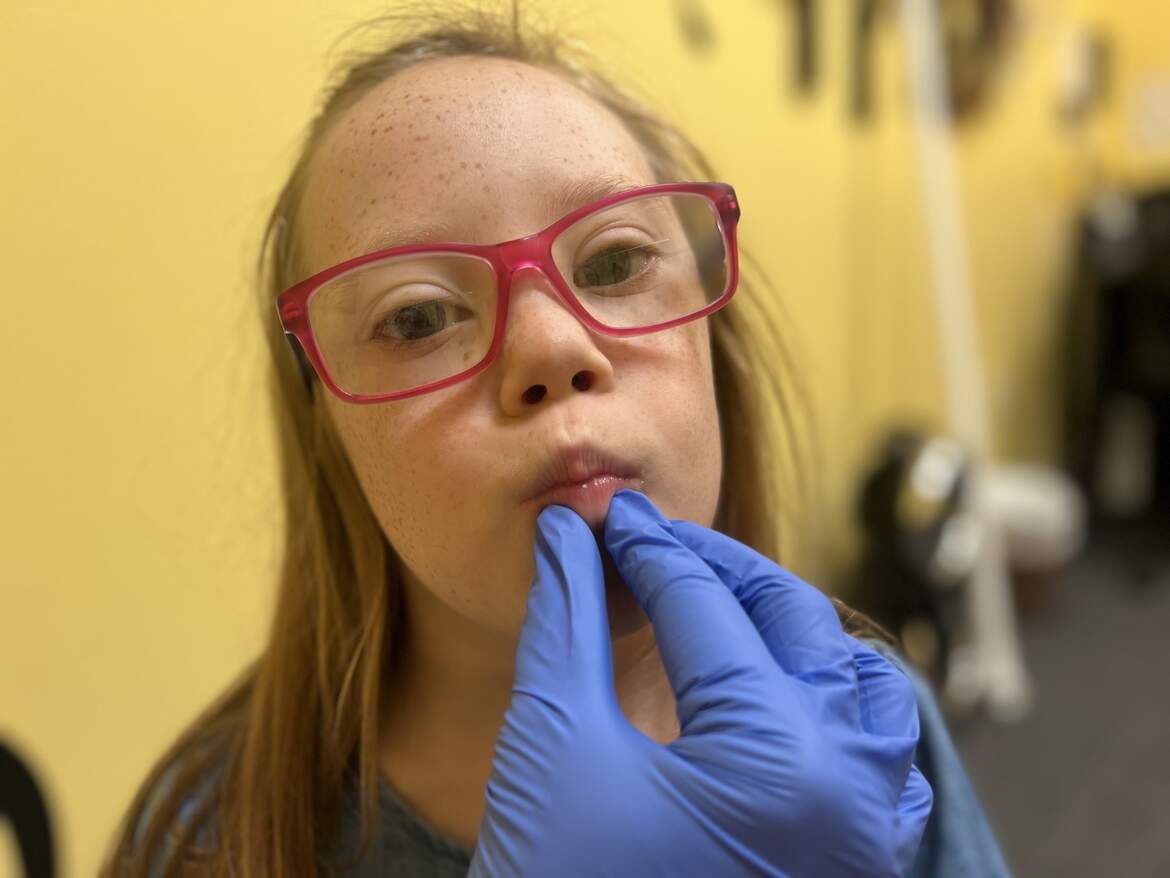
Beckman Oral Motor Protocol
A type of oral motor therapy that consists of specific oral motor stretches and stimulation techniques to improve the range, strength, variety and control of the lips, cheeks, jaw, tongue, and soft palate. This program does not require the cognitive participation of a child.
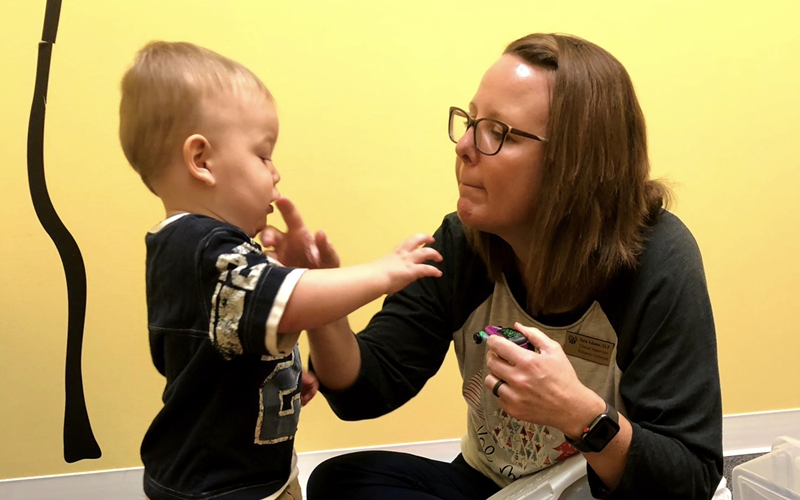
PROMPT
A technique where a trained therapist physically manipulates a child's jaw, face, and mouth to show him/her how a speech sound, sounds in the words, or words in sentences are produced.

Feeding Therapy
Oral motor and feeding skills are evaluated and treated in order to make each child the most successful eater possible.

DIR/FloorTime Approach
A treatment method that focuses on letting the child lead and the therapist joining in on their play. This allows the therapist to interact with the child on their level and then build on their strengths.
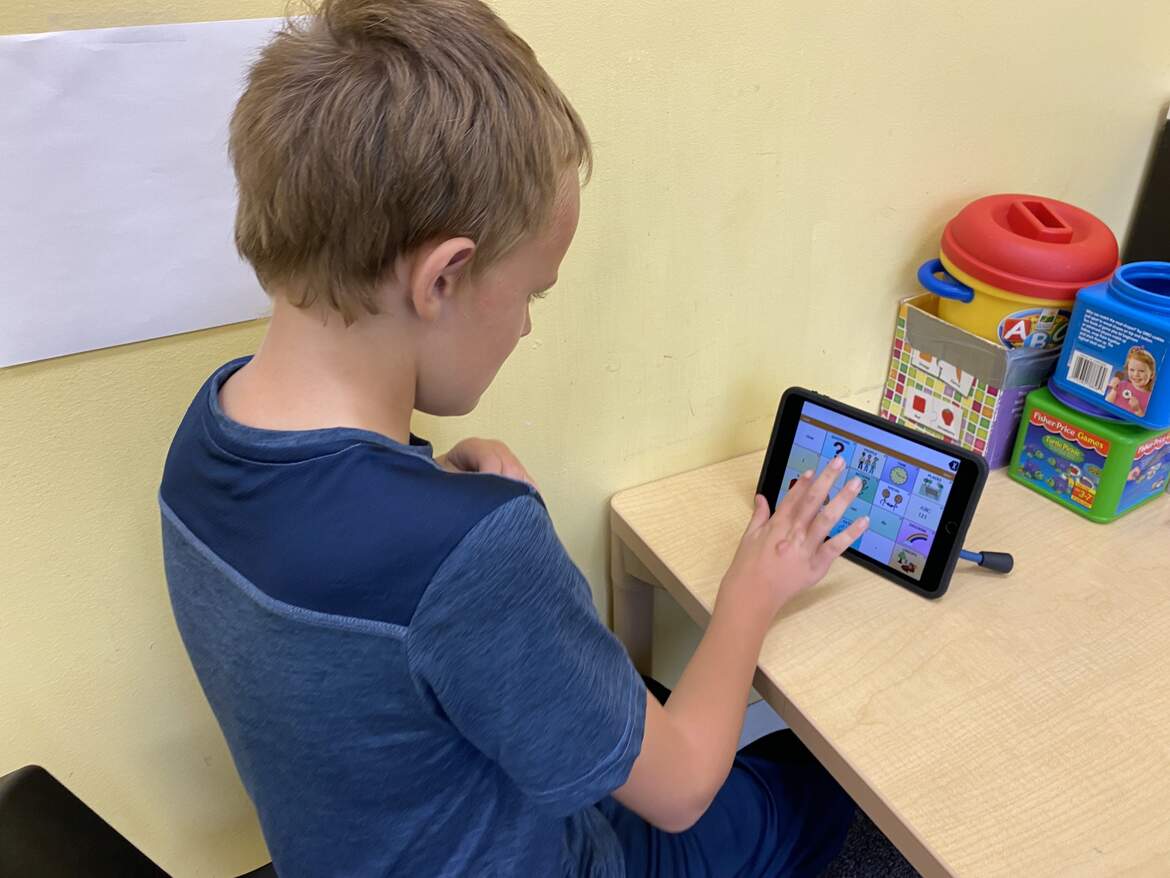
Augmentative and Alternative Communication (AAC)
A type of communication that uses communication devices, systems, strategies, and tools to help support natural speech.
